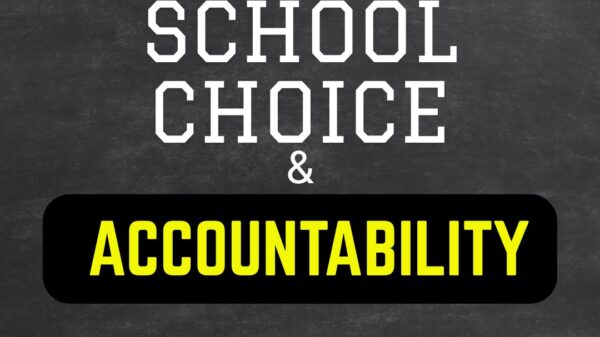Educators are increasingly concerned about both the quality and quantity of applicants entering the education field. Talented individuals eager to teach encounter numerous barriers as they navigate the complex licensure system.
Often, teachers themselves have been catalysts for innovative solutions to the many challenges facing education. However, with the ongoing teacher shortage, current educators frequently find themselves excluded from critical discussions.
Organizations like mine are keenly interested in fostering the next generation of educators. Our focus is on enhancing the experience and support provided to individuals as they transition from teacher candidates to classroom teachers.
Tennessee boasts outstanding colleges and universities, yet we often place obstacles in the path of our colleges of education and then criticize them unjustly. It’s essential that representatives from these institutions participate in discussions regarding this mission-critical issue, as we view them as indispensable partners in our efforts.
Effective educator preparation is vital for the future of education in Tennessee. As a state, we have already begun to examine admission requirements for educator preparation programs.
Research provides mixed insights into the relationship between academic admission criteria and the later effectiveness of teacher candidates, presenting an opportunity for further investigation. Typically, candidates must meet a minimum GPA of 2.75 and achieve a minimum ACT score of 21 (out of 36) or an SAT score of 1020 (out of 1600) to gain admission into an educator preparation program.
In 1986, deans from top education schools produced a significant report attributing much of the blame for struggling public schools to the quality of teacher training in colleges. Despite spending millions of dollars and countless hours on teacher preparation courses, we lack solid research to support many of the requirements imposed by colleges of education.
We should critically evaluate the Praxis exam—a test assessing the knowledge and skills required for classroom teaching—and assess its alignment with content standards. Additionally, the state has finally reconsidered our use of the EdTPA.
For instance, Alabama suspended the Praxis exam for two years to examine its effectiveness and address teacher shortages while striving to maintain high standards. Policymakers often grapple with how to measure and define a successful teacher training program. Therefore, we should convene our institutions and educator preparation programs at the Tennessee General Assembly, providing them a platform to discuss challenges and collaboratively identify solutions.
Elizabeth Moje, the dean of the School of Education at the University of Michigan, has proposed an innovative approach to teacher preparation: similar to medical training, new teachers would intern as a cohort, training in a single school for the subsequent three years.
Policymakers should dedicate more time and resources to understanding the science of teaching, including the development of individual teachers’ skills and the duration required for skill acquisition. Currently, policies reflect a greater understanding of teacher effectiveness after they enter the classroom rather than before. In addition to tracking completion rates of Educator Preparation Programs, we should also identify how many candidates actually enter the teaching profession and how long they remain in the field.
Change may be on the horizon, as the University of Michigan is making significant alterations to its teacher training practices. They are moving away from the longstanding tradition of placing educators in their own classrooms after just a few months of student teaching.
Elizabeth Moje’s innovative program and methods at the University of Michigan will extend teacher training through the first three years on the job, supporting new teachers as they take on the significant responsibility of educating children. The proposed teacher intern program at Michigan marks a dramatic shift in teacher training in this country, one that has been long overdue.
In essence, their approach resembles a teaching hospital, where future teachers—referred to as interns—train collaboratively under one roof. They will complete their student teaching there and, rather than seeking jobs in different schools, they will remain for three additional years as full-time, fully certified teaching “residents.”
These residents will not merely be trainees; they will be real classroom teachers working with actual students and earning a salary comparable to other first-, second-, or third-year teachers. Unlike their peers in traditional schools, they will continue to learn from their professors and collaborate closely with veteran teachers—referred to as attendings—who will comprise the majority of the school’s teaching staff.
Each educator preparation program has its distinct approach to supporting teacher candidates, and our organization aims to address gaps for our student members. Striking the right balance between providing essential information and avoiding overwhelming candidates is crucial.
Our organization, for example, focuses on key issues such as legal and professional development, offering specific tools for student teachers, including lesson planning assistance and classroom management support. We have incredible member benefits to assist educators, where districts may be limited.
The ongoing teacher shortage—particularly in special education, math, and science, as well as in schools serving low-income students, and English learners—is expected to worsen, especially given the projected increase in the school-age population and growth of the state. Vouchers could make the problem even worse, although their teachers do not have to be certified.
Colleges of education must also consider how to effectively serve Career and Technical Education (CTE) sectors. Areas such as business, agriculture, health, automotive, and mechatronics require high-quality teachers. Additionally, we should explore ways to enhance the skills of paraprofessionals who play essential roles in classrooms.
While there is no magic solution to ensure that all teachers excel before they begin teaching, we must strive to equip our educators with modern skills. Changes in our preparation methods for those who educate our children are essential; past practices are no longer sufficient.
Policymakers and stakeholders need to collaborate in implementing necessary changes that benefit our students and ensure quality educators enter and remain in the profession. Together, we can improve schools, making them better environments for teachers to work in and for students to learn.
JC Bowman is the executive director of Professional Educators of Tennessee. He is the Contributing Editor to TrIStar Daily.
















